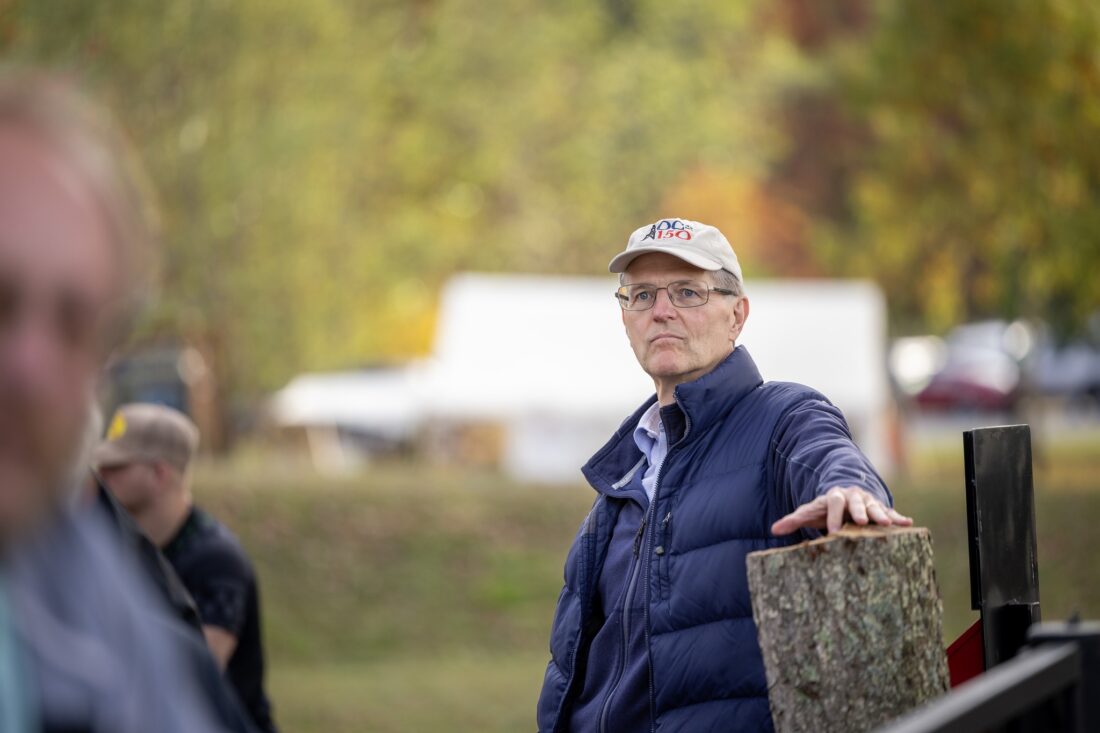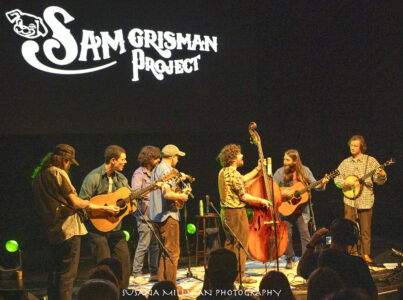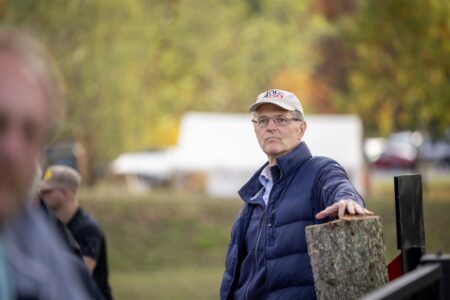Hutchinson wants to require realty transfer taxes for state agencies

Following a recent state Senate Game and Fisheries Committee public hearing, state Sen. Scott Hutchinson, R-Oil City, is pictured exploring the Elk Country Visitor Center.
State Sen. Scott Hutchinson is wasting no time proposing a change to the state’s realty transfer tax discussed during a recent Senate hearing.
Hutchinson is circulating a co-sponsorship memorandum for a bill he is drafting that will require the state to pay realty transfer taxes on land transfers. Currently, state agencies are exempt from paying realty transfer taxes, unlike regular property transfers between people, where both individuals share the cost. Hutchinson said people or businesses transferring property to state agencies must pay all transfer taxes unless the transfer of property is excluded.
“This incentivizes property transfers to the government, harming small rural communities with large amounts of government-owned land,” Hutchinson wrote in his co-sponsorship memorandum.
“For instance, Spring Creek Township in Warren County lost potential tax revenue from a 2023 land transfer of 2,195 acres valued at $3,783,103 to the Game Commission without compensation. This means the township cannot use the land for revenue and will have to find other sources. Having lost forever any annual property tax payments, at the very least, these property ownership changes should be treated like any other property transfers that are required to pay realty transfer taxes.”
Hutchinson said he proposes requiring the state Game Commission, state Department of Natural Resources, and state Fish and Boat Commission pay their fair share of realty transfer taxes. The legislation, once it is drafted, would also remove excluded transaction status for land transferred to conservancies and from conservancies to state agencies.
“This change will ensure transfer tax fairness, somewhat remove incentives for more government landownership, support local economies, attract jobs, and generate revenue for local governments,” Hutchinson wrote in his co-sponsorship memorandum. .
The Spring Creek Township land transfer was a point of contention between Hutchinson and state Game Commission officials during a recent state Senate Game and Fisheries Committee public hearing on the Game Commission’s land acquisition process. The Spring Creek land transfer was part of a 2,195 acre land-for-oil deal between the Pennsylvania Game Commission and Pennsylvania General Energy. The property includes the historic Clough farm. The value of the property was estimated at $6 million in 2023.
Terms of the transfer saw the Spring Creek Tract, referred to as the “Glen Dorn Property” by a PGC Facebook post, transferred to the PGC along with 943 acres in Cambria County in exchange for PGE’s ability to extract oil and gas from beneath a state game land in Lycoming County. The Game Commission said in a statement that the Spring Creek Tract was considered one of the most prized in the area because of its biological diversity. It is now State Game Lands 337 – though not without controversy.
Warren County is home to 36,922.03 acres of state game lands that will be valued in 2026 under the county’s reassessment at $10,920,950, according to testimony provided by Klakamp during the hearing. Roughly one-third of Warren County’s land is owned by either the Allegheny National Forest, Pennsylvania Game Commission or the Pennsylvania State Forest.
Hutchinson, who earlier in the session had asked about a no-net loss system in which the Game Commission would have to sell land in order to purchase new land, also asked about the payment of realty transfer fees on Game Commission land acquisitions.
“Do you think it’s fair when you have these transactions, some of which are pretty big, that you have ways to get around paying realty transfer taxes?” Hutchinson asked. “When you make those transactions, do you think it’s fair to the citizens who might be buying property – I don’t think it’s fair, obviously. What would you think if we put in a bill that says every transaction, you’re paying transfer tax. Again, that’s only a one-time deal whereas most property, over time, is going to have many transactions going forward.”
Stephen Smith, state game commissioner, responded by saying such a proposal would likely violate other state laws that require Game Commission revenue to be spent to administer the agency. Spending revenue on taxes could violate federal law and make the Game Commission ineligible for between $25 and $30 million a year in federal funding.
When Hutchinson pressed on the issue by saying the commission pays some transfer taxes, Smith and Dave Gustafson, state Game Commission deputy executive director, said the property seller usually pays the transfer taxes since the Game Commission, by law, cannot.
“Well then, there should be no question that you would support the seller paying it,” Hutchinson responded.
“I think we would refer to the law in the Department of Revenue’s opinion of those issues,” Gustafson responded.





